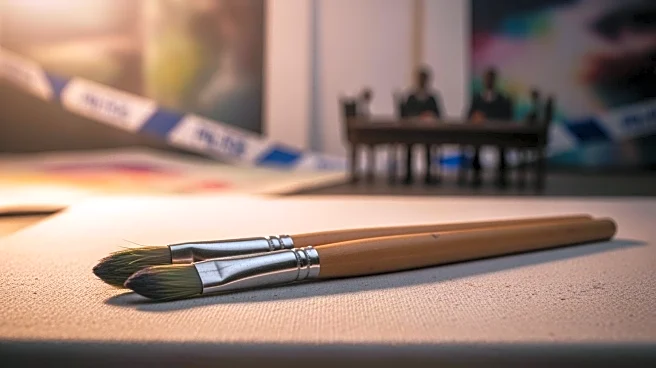What's Happening?
Chinese artist Gao Zhen, known for his satirical depictions of Mao Zedong, has been detained in China since August 2024. His health is reportedly deteriorating, with Human Rights Watch and his family expressing
concerns over his fainting spells and chronic back issues. Gao Zhen, a U.S. permanent resident, faces charges of 'slandering China’s heroes and martyrs,' which are being applied retroactively to his artworks. His wife and son, an American citizen, are not allowed to leave China. The artist's trial has been postponed, and his application for medical bail was denied. The case has drawn international attention, with over 20,000 people signing a petition for his release.
Why It's Important?
The detention of Gao Zhen highlights the ongoing tensions between China and the U.S., particularly concerning human rights and freedom of expression. Gao's case underscores the Chinese government's tightening control over ideological expression, which could impact U.S.-China relations, especially given Gao's status as a U.S. permanent resident and his son's American citizenship. The situation also raises concerns about the safety and freedom of artists and intellectuals in China, potentially affecting cultural exchanges and diplomatic relations between the two countries.
What's Next?
The international community, including human rights organizations and cultural figures, is likely to continue advocating for Gao Zhen's release. The U.S. government may increase diplomatic efforts to secure his freedom, given the implications for U.S. citizens involved. The case could lead to further scrutiny of China's human rights practices and impact future cultural and political engagements between China and the U.S.
Beyond the Headlines
Gao Zhen's detention reflects broader issues of censorship and control in China, reminiscent of past political persecutions. The case may set a precedent for how artistic expression is treated under Chinese law, potentially stifling creativity and dissent. It also raises ethical questions about the balance between national security and individual freedoms, both in China and in international relations.











